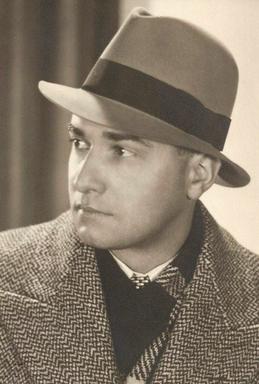
Friedrich Wilhelm Joseph Schelling, later von Schelling, was a German philosopher. Standard histories of philosophy make him the midpoint in the development of German idealism, situating him between Johann Gottlieb Fichte, his mentor in his early years, and Georg Wilhelm Friedrich Hegel, his one-time university roommate, early friend, and later rival. Interpreting Schelling's philosophy is regarded as difficult because of its evolving nature.

Thomas Metzinger is a German philosopher and Professor Emeritus of theoretical philosophy at the University of Mainz. His primary research areas include philosophy of mind, philosophy of neuroscience, and applied ethics, particularly focusing on neurotechnology, virtual reality, and artificial intelligence. He has argued in his book Being No One that the self is a mental construct created by the brain.

Ernst Alfred Cassirer was a German philosopher. Trained within the Neo-Kantian Marburg School, he initially followed his mentor Hermann Cohen in attempting to supply an idealistic philosophy of science.
Babette Babich is an American philosopher who writes from a continental perspective on aesthetics, philosophy of science, especially Nietzsche's, and technology, especially Heidegger's and Günther Anders, in addition to critical and cultural theory.

Eugen Fink was a German philosopher.

Friedrich Kambartel, was a German philosopher.

Josef Simon was a contemporary German philosopher and professor of the University of Bonn, born in Hupperath. He wrote extensively on metaphysics, epistemology, the philosophy of German idealism and various philosophers, mainly Kant, Hamann and Nietzsche. Perhaps Simon's most influential work has been in the philosophy of language. His main work, Philosophie des Zeichens, has been influenced by, among others, Kant, Hegel, Peirce and Wittgenstein, Hamann, Humboldt or Nietzsche.

The following list of works by German philosopher Georg Wilhelm Friedrich Hegel (1770–1831).

Pirmin Stekeler-Weithofer is a German philosopher and professor of theoretical philosophy at the university of Leipzig. He was the president of the international Ludwig Wittgenstein society (2006-2009) and is now a vice-president of this institution.

Ferdinand Fellmann was a German philosopher. After the expulsion of his family in 1946 out of Hirschberg Fellmann grew up in Hameln/Weser (Germany).
Odo Marquard was a German philosopher. He was a professor of philosophy at the University of Giessen from 1965 to 1993. In 1984 he received the Sigmund Freud Prize for Scientific Prose.

Volker Gerhardt is a German philosopher. He specializes in ethics, political philosophy, aesthetics, metaphysics and theology. His historical studies are centered on Plato, Kant and Nietzsche but have also dealt with Hegel, Marx, Jaspers, Voegelin, Hannah Arendt, Carl Schmitt and others.

Andreas Urs Sommer is a German philosopher of Swiss origin. He specializes in the history of philosophy and its theory, ethics, philosophy of religion, and Skepticism. His historical studies center on the philosophy of Enlightenment and Nietzsche, but they also deal with Kant, Max Weber, Pierre Bayle, Jonathan Edwards, and others.
Iring Fetscher (1922–2014) was a German political scientist and researcher on Hegel and Marxism.
Joachim Ritter was a German philosopher and founder of the so-called Ritter School of liberal conservatism.

Hermann Lübbe is a German philosopher. He is considered a member of the Ritter School.
Günter Figal was a German philosopher and professor of philosophy at University of Freiburg. He was a specialist in the thought of Hans-Georg Gadamer, and Martin Heidegger. His research focused on hermeneutics, phenomenology, German classical philosophy and the history of metaphysics. Figal was the president of the Martin-Heidegger-Society between 2003 and 2015. Figal died at the age of 74.
Wolfgang Cramer was a German philosopher and mathematician.
Walter Rudolf Schweidler is a German philosopher.

Jens Hacke is a German political scientist and author.












